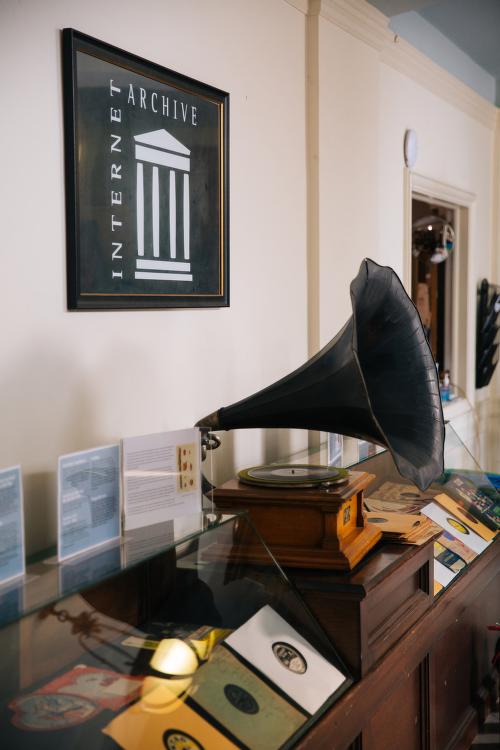Internet Archive Responds to Recording Industry Lawsuit Targeting Obsolete Media (original) (raw)
Late Friday, some of the world’s largest record labels, including Sony and Universal Music Group, filed a lawsuit against the Internet Archive and others for the Great 78 Project, a community effort for the preservation, research and discovery of 78 rpm records that are 70 to 120 years old. As a non-profit library, we take this matter seriously and are currently reviewing the lawsuit with our legal counsel.
A 78 rpm player in the foyer of the Internet Archive.
Of note, the Great 78 Project has been in operation since 2006 to bring free public access to a largely forgotten but culturally important medium. Through the efforts of dedicated librarians, archivists and sound engineers, we have preserved hundreds of thousands of recordings that are stored on shellac resin, an obsolete and brittle medium. The resulting preserved recordings retain the scratch and pop sounds that are present in the analog artifacts; noise that modern remastering techniques remove.
Statement from Brewster Kahle, digital librarian of the Internet Archive:
“When people want to listen to music they go to Spotify. When people want to study 78rpm sound recordings as they were originally created, they go to libraries like the Internet Archive. Both are needed. There shouldn’t be conflict here.”
These preservation recordings are used in teaching and research, including by university professors like Jason Luther of Rowan University, whose students use the Great 78 collection as the basis for researching and writing podcasts for use in class assignments (University Professor Leverages 78rpm Record Collection From the Internet Archive for Student Podcasts, June 9, 2021). While this mode of access is important, usage is tiny—on average, each recording in the collection is only accessed by one researcher per month.
A technician uses a 4-arm turntable to digitize a 78 rpm record.
While we review the lawsuit, we remain dedicated to our mission of providing “Universal Access to All Knowledge.” We are grateful for the continued support of our library patrons and partners as we continue to fight these attacks.
For more information or media inquiries, please contact press@archive.org.
LINKS
- The Great 78 Project: https://great78.archive.org/
- University Professor Leverages 78rpm Record Collection From the Internet Archive for Student Podcasts: https://blog.archive.org/2021/06/09/university-professor-leverages-78rpm-record-collection-from-the-internet-archive-for-students/
- 78 rpm record digitization: https://archive.org/details/mass78rpmdiscdigitization

